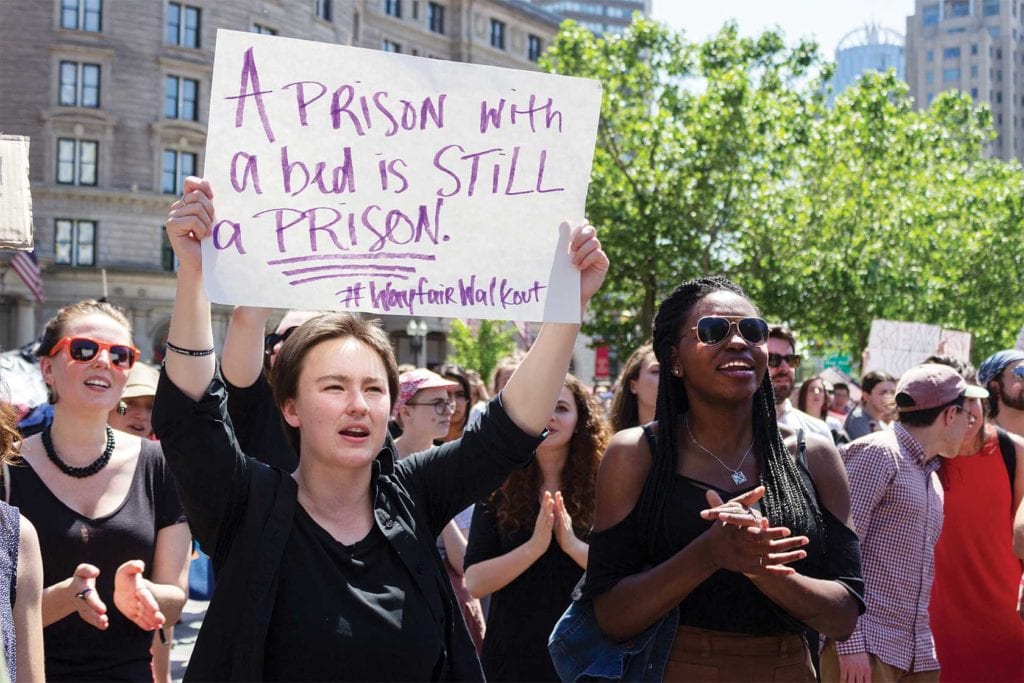Wayfair protest aimed at immigrant detention
Employees oppose contract with Texas facility

Hundreds of employees of the international online furniture retailer Wayfair staged a walkout at the company’s Copley Square headquarters Wednesday to protest its sale of beds and other furniture to migrant detention centers near the Mexican border.
The demonstration was planned following the employees’ discovery that in the week prior the company, through its business-to-business sales program, had filled an order of $200,000 worth of bedroom furniture for a facility in Carrizo Springs, Texas, meant to hold up to 3,000 migrant children seeking asylum.
Wayfair employee Madeline Howard, who acted as emcee at the rally on Copley Square, where the employees were joined by hundreds of supporters, said that she had been at the company for almost seven years but had never felt disappointed in it like she did now.
“This is the first time I’ve felt like I needed to hit the streets to make sure I was proud of my company, that I was happy to work for them, to make sure that we’re all adhering to those Wayfair values, like ‘Everyone deserves a home that they love,’” Howard said, referring to the company’s mission statement as it is posted on its website.
A letter signed by 547 employees was sent to Wayfair’s leadership team asking them to cancel the order and all future business with government contractor BCFS, which runs the facility and others like it, as well as create a code of business ethics for its Business-to-Business department. The company responded with a letter to employees declining to follow these demands.
“As a retailer, it is standard practice to fulfill orders for all customers and we believe it is our business to sell to any customer who is acting within the laws of the countries within which we operate,” the letter stated. “We believe all of our stakeholders, employees, customers, investors and suppliers included, are best served by our commitment to fulfill all orders. This does not indicate support for the opinions or actions of the groups or individuals who purchase from us.”
Later, shortly before the walkout, Wayfair CEO Niraj Shah and his co-founder Steve Conine told employees in a second letter that they would make a $100,000 donation to the American Red Cross to help with basic necessities for migrants at the border. Employees, however, believed that this was not enough, as the Red Cross does not have anything to do with the detention camps, and asked the company to instead donate the profits from the sale to RAICES, an immigrant legal aid organization.
“We’re not here because we hate our jobs, or we think this is a bad company. But sometimes people forget that we need to be human,” said Wayfair employee Rachel Dougherty. “We don’t want these kids to not have beds and to be sleeping on the floor. We want those kids to have beds, but we want them to have homes.”
Other employees and speakers echoed this sentiment, with some comparing the current detention camps on the border to other points throughout history where the United States has conducted or overlooked similar instances of mass-incarceration, including the Japanese internment camps during World War II and the concentration camps in Europe during the Holocaust.
“We’re treating children like disposable cattle. We’re assigning dollar values to human life,” said Phil, a Wayfair employee who declined to give his last name. “The most frightening part is that this is not the first time. This is not the second time. But we will be sure that this is the last time.”








